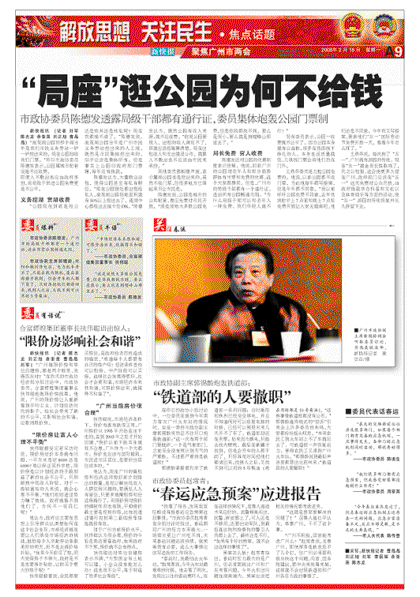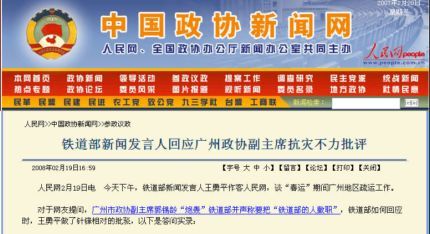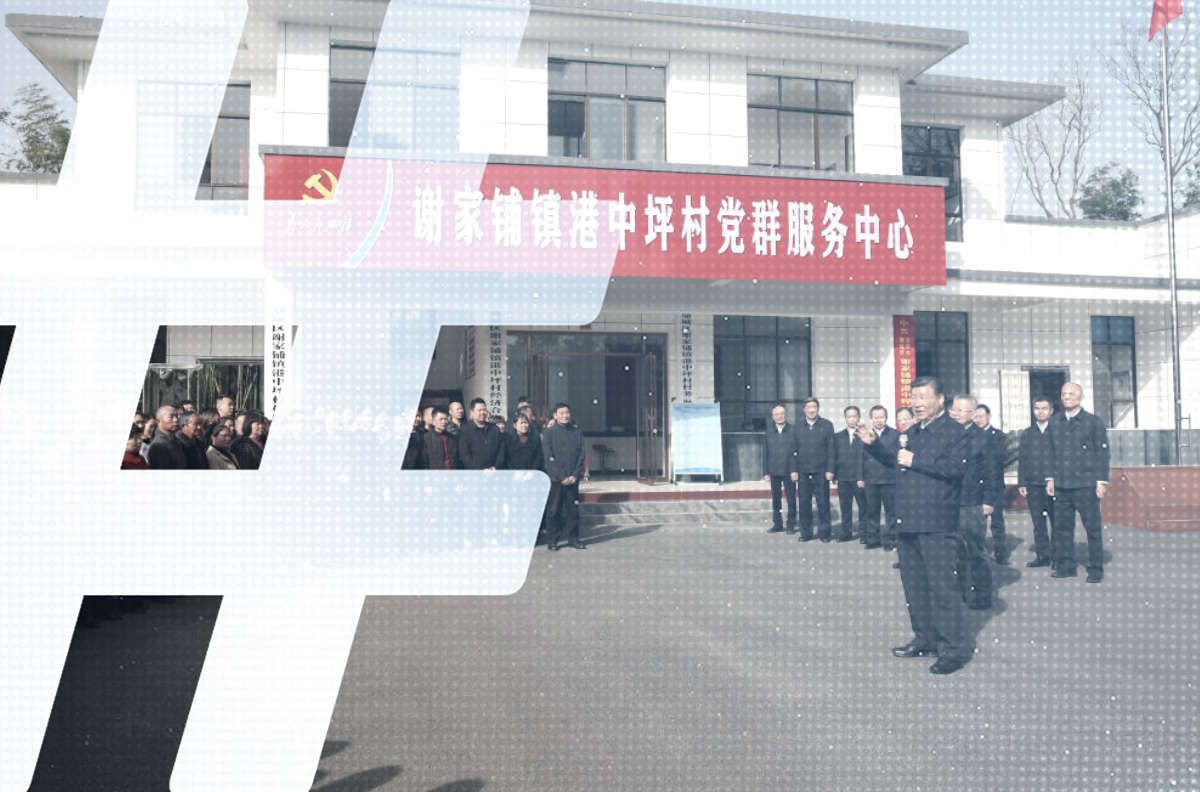Headlines and Hashtags
Chinese media highlight information access as the railway ministry faces off with a local official
By David Bandurski — CMP wrote back on February 1 that a key test of mainland coverage of the recent snowstorms would be whether and how media were allowed to re-visit the government’s foibles and failures. In recent days, criticism of the disaster response has been scant. But we now have the first real rumblings of contention over government missteps, and the debate has been set off not by bolder media but by a now-embattled small-time official from Guangzhou.
The controversy began several days ago as Guo Xiling (郭锡龄), deputy secretary of Guangzhou’s Political Consultative Conference, openly criticized China’s Ministry of Railways for dealing inadequately with shutdowns in the national rail system earlier this month.
[ABOVE: Screenshot of March 2006 coverage by Yangcheng Evening News via Netease of Guo Xiling’s selection as deputy secretary of Guangzhou’s People’s Political Consultative Conference.]
Addressing the recent CPPCC session in Guangzhou, Guo listed off a series of failures that he said had further contributed to the chaos. He added that “people in the Ministry of Railways should be removed” (铁道部的人要撤职).
Guo’s criticisms were first reported on February 18 in Guangzhou’s New Express (See image below).

Web users across China quickly seized on the New Express story and expressed their disappointment with the failures of the Ministry of Railways.
A spokesman from the ministry issued a response to Guo Xiling’s criticisms yesterday, addressing them point by point.
But the tone of the MOR response was decidedly combative, the spokesman prefacing his remarks by saying he was “astonished by deputy secretary Guo’s remarks and found them hard to understand because they went against the facts and common sense.”

[ABOVE: Screenshot of People’s Daily Online coverage yesterday of the response issued by the Ministry of Railways.]
The spokesman also took a political potshot at Guo in a statement intended for Internet users across the country:
I would like to tell Web users that key leaders and comrades in Guangzhou’s party committee have already said clearly that the frivolous and irresponsible public remarks of isolated comrades do not represent the Guangzhou party committee or the government of Guangzhou, nor do they represent the local people’s congress or CPPCC.
A number of editorials in the mainland press today came to the defense of the Guangzhou CPPCC vice secretary and his right to express his doubts about how the recent disaster was handled.
They also raised the question of information access, pointing out that it was disingenuous for the MOR to criticize Guo Xiling for the inaccuracy of his facts when information on the rail system was carefully guarded by the ministry itself.
The point is a crucial one given the intense pressures facing investigative reporting in recent months and years. It is also relevant to China’s national ordinance on information openness, set to take the stage later this year.
In its lead editorial today, Guangdong’s Southern Metropolis Daily spoke of the need to “reflect back, make improvements and move forward (反思、改正和进步) and criticized the Ministry of Railways for its aggressive attitude in fending off the questions raised by Guo.
“The spokesman from the Ministry of Railways said the vice-secretary Guo’s allegations went against the facts and against common sense,” the newspaper wrote. “This kind of statement, if it arises from rational debate (科学辩论), is OK. But as a response to the raising of doubts by citizens, it is extremely unwise.”
As the sole government office responsible for the management and operation of China’s rail system, the Ministry of Railways holds in its hands all available information about the rail system, and this is something an ordinary citizen like Guo Xiling cannot possibly have. This asymmetry of information access, and more importantly asymmetry between public organs and individual persons means raising doubts is a natural right (天然权利) of citizens, and this right is not confined to statements of absolute accuracy.
[Posted February 20, 2008, 12:43pm HK]






















